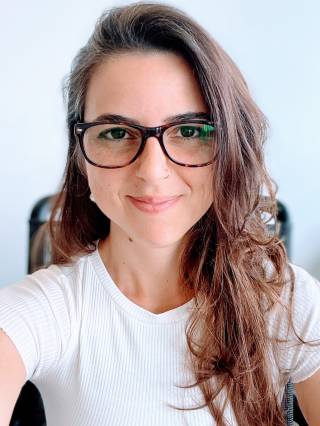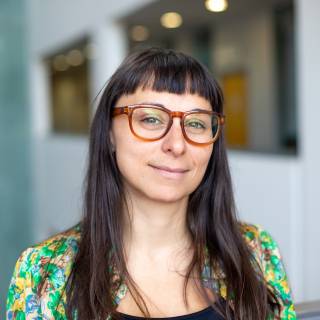Public Health Systems in the Age of Financialization
17 June 2024, 5:00 pm–6:30 pm

Join UCL IIPP in conversation with Dr Ana Carolina Cordilha, Lecturer at the Economics Department of Sorbonne Nouvelle University
This event is free.
Event Information
Open to
- All
Availability
- Yes
Cost
- Free
Organiser
-
IIPP Comms
Register here
Join this fascinating discussion on Monday 17th June 2024 at 17:00-18:30 (BST) at University College London (UCL).
About this talk:
In Public Health Systems in the Age of Financialization, Ana Carolina Cordilha unpacks policy shifts that have transformed public health systems into vehicles for financial speculation and capital accumulation. While it is commonly thought that these systems are being cut back in the period of financialization, the author shows that current changes in public health financing go far beyond budget cuts and privatization measures. She examines how public health systems are adopting financial instruments and participating in financial accumulation strategies, with harmful impacts on solidarity and democratic participation. With an in-depth study of both the French and Brazilian systems, Cordilha explores the different ways in which this process unfolds in central and peripheral countries.
Meet the panel:
- Speaker: Dr Ana Carolina Cordilha | Lecturer at the Economics Department of Sorbonne Nouvelle University
- Discussant: Sion Williams-Eliyesil | PhD candidate at the Institute for Innovation and Public Purpose (IIPP)
- Chair: Dr Cecilia Rikap | Head of Research and Associate Professor in Economics at the UCL Institute for Innovation and Public Purpose (IIPP)
About the Speakers
Dr Ana Carolina Cordilha
Lecturer at the Economics Department at Sorbonne Nouvelle University

Dr Ana Carolina Cordilha is inspired by different schools within Heterodox Economics and draws particularly on dependency theory to understand how currency hierarchies shape monetary and fiscal policy, and consequently the financialization of social security, in central and peripheral economies. More recently, Ana Carolina has been working on topics related to finance and landgrabbing, as well as wealth inequalities.
She is a member of the Institute for High Studies in Latin America and the Center for Research and Documentation on the Americas of Sorbonne Nouvelle University (Institute des hautes études en Amérique latine - IHEAL / Centre de recherche et de documentation des Amériques - CREDA). Her teaching activities at Sorbonne Nouvelle include courses in International Political Economy/Economic Development, Research Methodology, and Quantitative Methods in Social Sciences.
Ana Carolina is also a member of the research project "Wealth Inequalities and Elites in the Global South", held by the Southern Center for Inequality Studies (SCIS) at the University of the Witwatersrand (Johannesburg).
More about Dr Ana Carolina CordilhaDr Cecilia Rikap
Head of Research and Associate Professor in Economics at UCL Institute for Innovation and Public Purpose

Cecilia’s research is rooted in the international political economy of science and technology and the economics of innovation. She currently studies the rising concentration of intangible assets leading to the emergence of intellectual monopolies, among others from digital and pharma industries, the distribution of intellectual (including data) rents, resulting geopolitical tensions and the effects of knowledge assetization on the knowledge commons and development. She has published two books on these topics. 1) “Capitalism, Power and Innovation: Intellectual Monopoly Capitalism uncovered” (Routledge), recently won the EAEPE Joan Robinson Prize Competition. 2) “The Digital Innovation Race: Conceptualizing the Emerging New World Order” (Palgrave), co-authored with B.A.K. Lundvall, focuses on the artificial intelligence race and clashes of power between the US and Chinese Big Tech, the US state and the Chinese states. Her recent work includes corporate planning of global production and innovation systems driven by intellectual monopolization and how these leading corporations, in particular tech giants, are developing state-like features, thus reshaping core and peripheral states. More about Dr Cecilia Rikap
Sion Williams-Eliyesil
PhD candidate at UCL Institute for Innovation and Public Purpose (IIPP)

His research focuses on the coalitions of actors that developed vaccines in response to the Covid-19 pandemic. Sion’s work also focuses on the role that emergent collective identities play in binding coalitions of stakeholders in the creation of movements, with a view to understanding how inter-organisational movements shape the production of innovation within ecosystems.
By applying novel elements of social and organisational psychological theory, Sion’s work aims to broaden the toolkit of behavioural public policy to include more co-creative and participative mechanisms for shaping behaviour.
Sion’s research is informed by over a decade's experience in working with organisations and governments to shape behaviour in systems of innovation. He currently holds the position of Culture and Integration Expert at the Doha-based NGO, Qatar Foundation, where he focuses on building greater synergy between government, education and health institutions, and social programmes to address national grand challenges for the small Gulf state.
Sion is also an active member of the teaching team and continues to contribute to the Transformation by Design module as part of the Institute's MPA programme. More about Sion Williams-Eliyesil
 Close
Close

